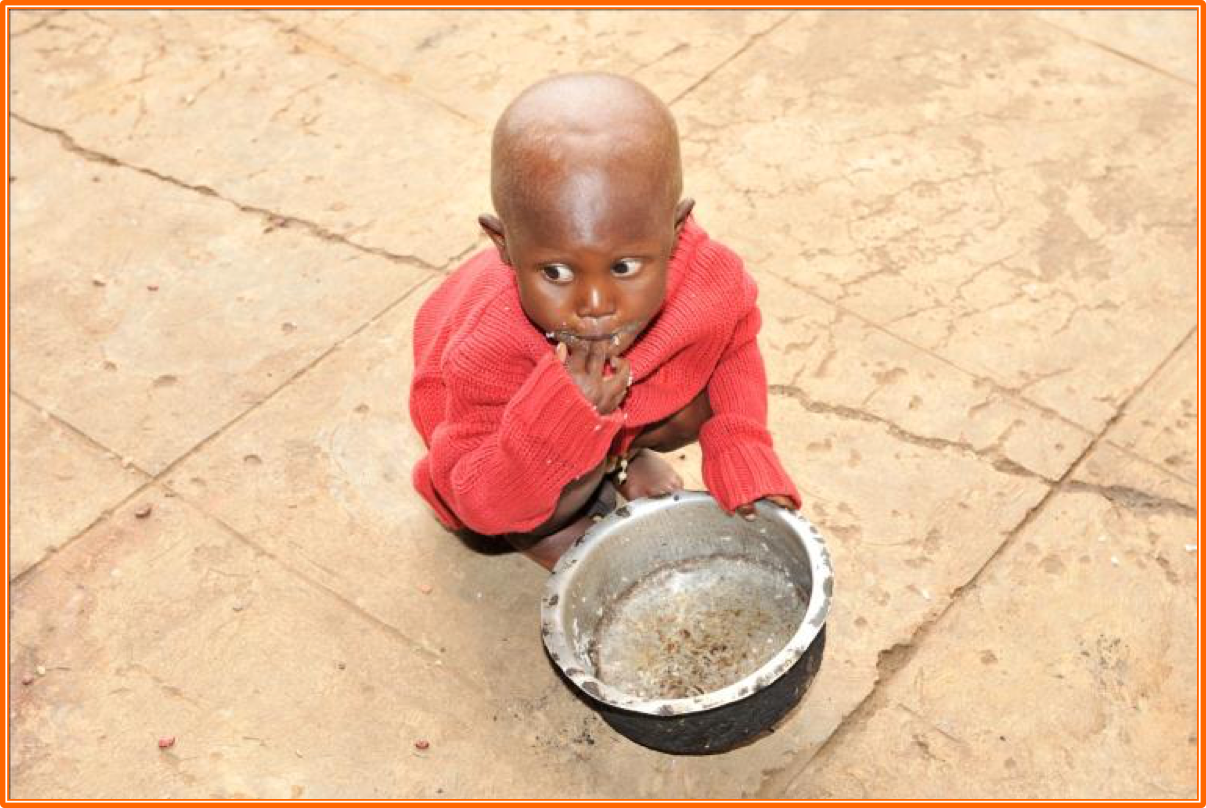
What does this malnourished Kabale kid do?
Three Ugandan politicians have died in the last three weeks. Maria Lubega Mutagamba, a former minister of tourism died from complications of liver cancer. She was 64.
John Sebaana Kizito, a former government minister, wealthy businessman, mayor of Kampala, political party leader and presidential candidate died from a stroke. He was 82.
Kaudha Grace Hailat, the member of parliament for Iganga Municipality, reportedly died from complications of severe pregnancy induced hypertension. She was 30.
The deaths of these compatriots left their families and friends with deep grief that nobody else can imagine. We send our condolences to the bereaved and pray that they may find comfort and strength to continue living and serving others.
Sadly, the deaths and burials of these prominent politicians have, once again, exposed a country that has completely lost direction.
Sparing no expense, the government ensured that the dead were accorded what millions of the living are denied, namely, comfort and dignity.
My uninformed guess is that total public spending on the three funerals probably exceeded UGX 350 million ($100,000), the kind of money that would easily transform the quality of services at a public hospital.
The death of young Ms. Hailat from a complication of pregnancy was particularly maddening. It was a tragic loss of yet another woman who sought help from a sick health care system.
What made matters worse were the speeches and other statements by politicians that suggested that they attached greater worth to Hailat’s life than they did to the lives of their constituents.
How else to explain the statement by Busoga area MPs in which they called for better funding for health services? One vowed to expedite legislation for national health insurance. Evidently it took Hailat’s death to concentrate the honorable lady’s mind on this important, albeit inadequate measure in the fight against premature deaths.
Another woman MP correctly asked why there was no obstetrician/gynaecologist on duty when Hailat presented to Case Clinic, a popular and expensive private hospital in Kampala.
A better question would have been why millions of Ugandan women, regardless of their physical address or social status, did not have access to safe and comprehensive obstetric care near their homes.
But it was a question by Rebecca Kadaga, the speaker of parliament, that crystalized the disconnect between rulers and subjects. After relaying news that Ms. Mutagamba had felt abandoned by the government, Kadaga asked: “what does a Ugandan do when they have no backing of the ministry or the joint medical board?"
That was an excellent question, Ms. Kadaga. The answer, of course, is well known to most Ugandans and they will tell you if you stop and listen to them.
The Ugandan who is not connected to the giver of things accepts her fate and awaits preventable death. She does not even dream of going to Case Clinic or Nakasero Hospital, let alone India or Europe.
A sick Ugandan turns to her relatives and neighbours to seek what little help they can offer her in her last days.
The peasant sells his land or animals to pay for substandard care at under-resourced public hospitals or health centres. His children must drop out of school.
Unlike a Ugandan celebrity who turns to her peers, her fans and other kind souls to raise funds to send her abroad, a normal Ugandan of faith turns to a church where she pays for prayers by a fraudulent self-styled pastor, apostle or prophet that offers false hope and fake miraculous cures. The wealthy pastor then flies first class to India to get first class secular medical treatment by “non-believers.”
A sick Ugandan endures a rough boda boda ride to a health care facility. She may encounter a multi-vehicle convoy ferrying a top public official to Entebbe Airport to take a flight to India or Europe for health care.
A Ugandan, awaiting her premature death in some overcrowded death trap, imagines what it feels like to be a “VIP” flying first class to a first-class hospital in a first world country, all paid for by the sweat of the groundnut farmers of Busoga, sorghum growers of Kigyezi and the fishermen of Kyoga.
A Ugandan bribes the security guard, the admissions clerk, the nurse and some of the doctors to get some sort of health care. He watches with incredulity as the MPs and other top government officials award themselves great salaries and benefits, including cash for first class health care abroad.
A Ugandan knows that the rulers are not alone in this disconnect. Opposition MPs, senior civil servants and other bosses of public agencies are reliable partners with their ruling party colleagues when it comes to taking care of themselves. Even the politicians’ supporters, some of them among the wretched of the Earth, yell insults at folks like me who dare to challenge this obscene greed.
The most quoted line in George Orwell’s Animal Farm is: “All animals are equal, but some animals are more equal than others.” However, my personal favourite is: “The creatures outside looked from pig to man and from man to pig and from pig to man again; but already it was impossible to say which was which.”
It is a national enterprise, of victim and oppressor, that promotes survival of the minority.